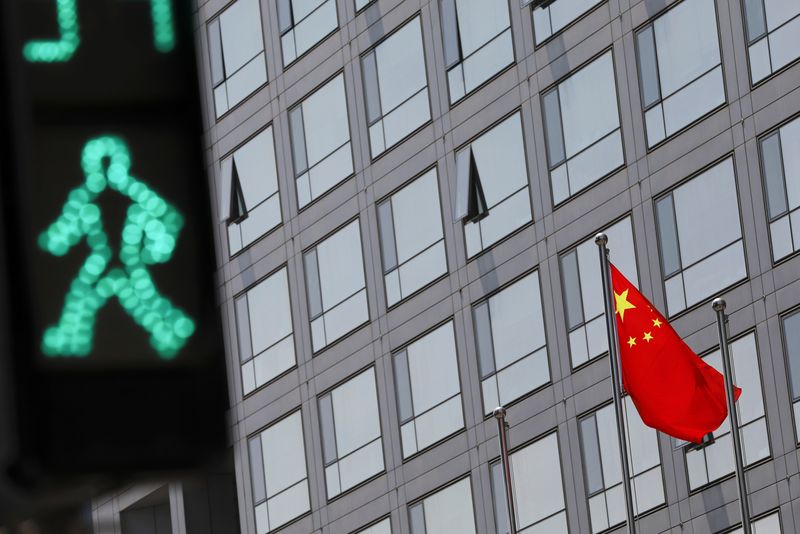SHANGHAI/BEIJING (Reuters) -China's securities regulators have asked some hedge fund managers to restrict short selling in its stock index futures market, two sources said, as authorities seek to stabilise sinking stocks.
The blue chip CSI300 Index plunged to near five-year lows this week, prompting fresh vows by the government to steady capital markets.
A hedge fund manager said he received calls from China's financial futures exchange, cautioning against reckless short selling, especially "naked" short selling that is not conducted for hedging purposes.
Another hedge fund source said the exchange had informally asked his firm recently not to short sell for speculative purposes.
"Shorting is profitable in a falling market," the source said. "But if you get calls from the exchange, you get the message that you should no longer short sell to make a profit."
The sources spoke on condition of anonymity.
The China Financial Futures Exchange (CFFEX) did not reply to a Reuters request for comment. Nor did the China Securities Regulatory Commission (CSRC), which oversees the exchange.
China's stock market tumbled 13% in 2023 and has extended its slide in the new year amid relentless foreign selling, a deepening property crisis and shaky economic recovery.
On Tuesday, CSRC Chairman Yi Huiman vowed to safeguard stable operation of the capital markets with full force. China's State Council, or cabinet, also pledged more forceful and effective measures to support market confidence.
The sources said regulators did not spell out specific curbs in their informal guidance, but hinted that shorting activities using stock index futures would be curbed.
Some investors were nudged to unwind their heavy short positions as soon as possible, the sources added.
The window guidance - unwritten instructions from regulators - came amid signs of a spike in shorting interest.

Futures contracts on the small-cap CSI1000 Index due in Sept 2024 tumbled on Monday by the daily maximum limit of 10%, to trade 8% below the underlying index. Turnover of the futures contracts also spiked.
Heavy stock index futures selling was partly due to risk management activities as losses on billions of dollars worth of derivatives linked to China's equity indexes forced a vicious cycle of selling in stocks and futures contracts.